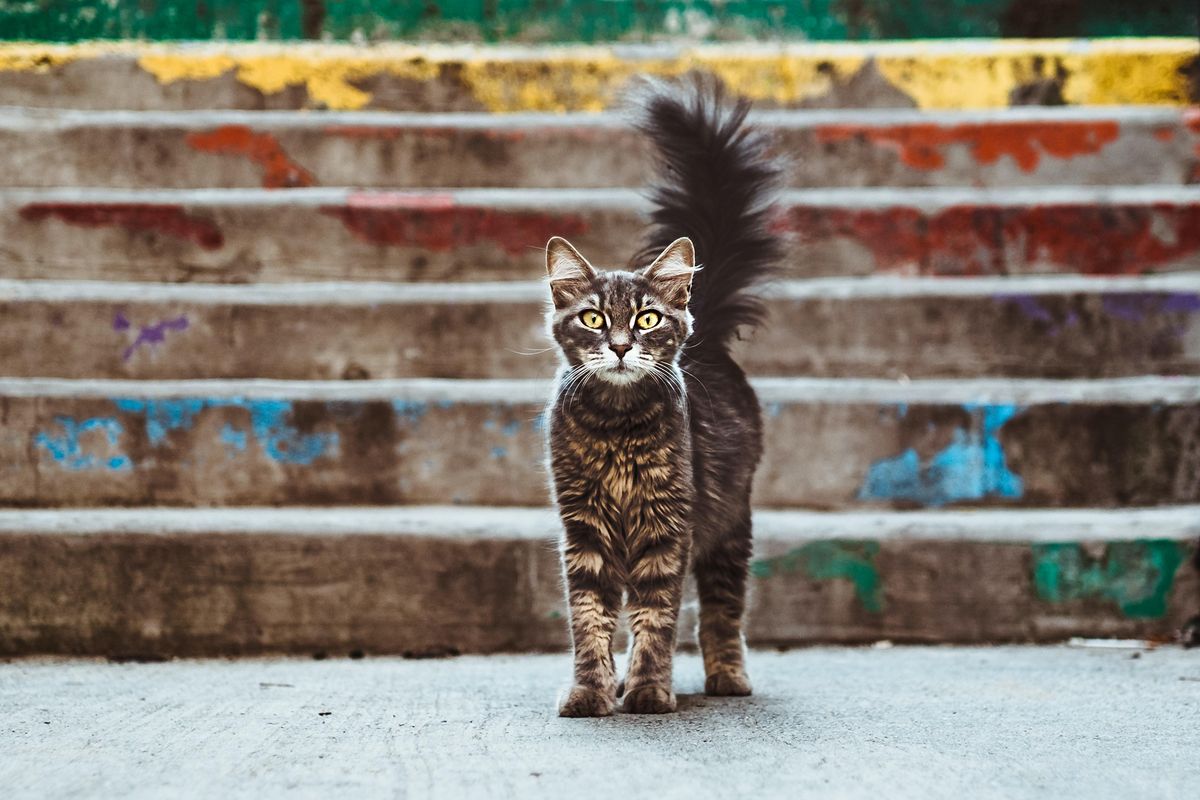As a participant in the Amazon Associates affiliate program, Upworthy may earn proceeds from items purchased that are linked to this article, at no additional cost to you.
Out of all human inventions, books might just be the greatest. That's a bold statement in the face of computers, the Internet, and the International Space Station, but none of those things would be possible without books. The written record of human knowledge has allowed our learning advancements to be passed down through generations, not to mention how incredible it is that we're able to capture human creativity through longform storytelling.
Books have the power to change our lives on a fundamental level, shift our thinking, influence our beliefs, put us in touch with our feelings, and help us understand ourselves and one another better. That's why, in January 2024, we asked Upworthy's audience to share a book that changed their life. Thousands of responses later, we have a list of inspiring reads that rose to the top.
Unsurprisingly, the most common responses were religious scriptures—the Bible, the Quran, the Book of Mormon, etc. Beyond those, here are the most common books, both fiction and non-fiction, that people considered life-changing.
 The Alchemist by Paulo CoelhoAmazon
The Alchemist by Paulo CoelhoAmazon
"From the very first page, Coelho's storytelling prowess weaves a tapestry of adventure, wisdom, and self-discovery that is unparalleled. The protagonist's quest for his personal legend resonated deeply with me, prompting introspection into my own aspirations and purpose. The narrative, while seemingly a simple tale, unravels layers of universal truths and timeless wisdom that are applicable to every reader's journey." – Matt Brown
"Such greatness. Coelho tells the story with simplicity and elegance, and it is beautiful. The Alchemist is rhetorical kind of book that stays with you, and demands some time to unfold in your mind. Loved it!" – J. Green
Find The Alchemist on Amazon.
 The Four Agreements by Don Miguel RuizAmazon
The Four Agreements by Don Miguel RuizAmazon
"This book literally changed my outlook on so many things. I’ve read it at least three times completely through. It helps deal with anxiety and helps you reframe and analyze your thoughts which may be troubling you. The writing style is great and I’ve already read other books by the same author. Would highly recommend purchasing this if you want to rethink your assumptions about yourself or other people." – Freddy
"By far the best book I’ve read. The simplicity in composition and detail is amazing. Would recommend everyone have a read. This book is truly a masterpiece." – Joshua
Find The Four Agreements on Amazon.
 To Kill a Mockingbird by Harper LeeAmazon
To Kill a Mockingbird by Harper LeeAmazon
"I remember reading the book many years ago and being moved by it especially being from the North and not as familiar with racism. I wondered why some schools were banning it so decided to revisit. I had forgotten the details but it is still an important book and reminds us that the fight against all prejudice is never finished and its current resurgence is cause for concern. This book should be required reading at a pretty young age. We can’t change what we don’t understand. If you have children read it with them and teach them well." – Maria
"I can’t imagine, for the life of me, why this book has been banned. It is the most moral and righteous book I’ve ever read. It represents a time in our history when racism was endemic to the white population except for one compassionate lawyer. Told from his children’s point of view with an unforgettable narrator, the story of a small southern town comes alive." – Peggy
Find To Kill a Mockingbird on Amazon.
 The Power of Now by Eckhart TolleAmazon
The Power of Now by Eckhart TolleAmazon
"This has become a true icon in the book of books on understanding how the mind works and how we become trapped in it. A must read." – Bill C.
"This book helped me through the toughest time in my life. It was an easy read, but ultimately, it helped me open my mind to many things and see things from multiple perspectives. My life coach recommended this book, and I'm happy that she did. It truly did save my life." – Coach J.
Find The Power of Now on Amazon.
 The Midnight Library by Matt Haig assets.rebelmouse.io
The Midnight Library by Matt Haig assets.rebelmouse.io
"I did not expect to enjoy this book so much. I very much admire the writer's prowess in creating a beautiful and inspiring story out of a depressing premise and what I admire even more is the perspective he has given me about life." – Ashish S.
"The Midnight Library by Matt Haig is nothing short of a literary masterpiece that effortlessly weaves together the threads of life, regret, and the boundless possibilities that lie in our choices. This No.1 Sunday Times bestseller and worldwide phenomenon is a soul-stirring exploration of the human experience that lingers in the reader's mind long after the final page." – George L.
Find The Midnight Library on Amazon.
 Atomic Habits by James ClearAmazon
Atomic Habits by James ClearAmazon
"Atomic Habits by James Clear isn't just a book; it's a roadmap to personal excellence. Deserving a resounding 5 out of 5 stars, this masterpiece has profoundly impacted my approach to habit formation and personal development." – Ahamed
"Whether you're looking to break free from destructive habits, achieve ambitious goals, or simply lead a more fulfilling life, this book is a must-read. Clear's insights have the power to ignite change and propel you towards the best version of yourself." – SC
Find Atomic Habits on Amazon.
 Tuesdays with Morrie by Mitch AlbomAmazon
Tuesdays with Morrie by Mitch AlbomAmazon
"I wish I had read this book earlier. It teaches to love those in your life with everything you have. We never know when life will take them away. Our parents will continue to age. Our friends will drift away. We will end up driving away the ones we say 'I love you' to. It’s not too late to tell them how much you love them. It’s not too late to show them how much you love them. If you share your love before it’s too late, you won’t live your life with regret." – P.M.
"Mitch Albom is my favorite author. Tuesdays with Morrie did not disappoint. Please please read this book. It is heartwarming, inspirational and will make you do an introspection that will change your priorities. I promise." – A.C.
Find Tuesdays with Morrie on Amazon.
8. Untamed by Glennon Doyle
 Untamed by Glennon DoyleAmazon
Untamed by Glennon DoyleAmazon
"By page 16, I’d already sobbed, laughed, sobbed, reconsidered who I am, how I live my life, and what I’m doing next, and cried again. So much fire lit. This is a masterpiece. Thank the universe (and Glennon) it published now. Lord knows we need this now. It is already one of my top favorite books ever, and I read a lot. Like, a LOT." – Anna S.
"Untamed is a powerful and empowering memoir that delves deep into themes of self-discovery, authenticity, and breaking free from societal expectations. Doyle's writing is raw, honest, and deeply relatable. From the moment I started reading, I felt a connection to her journey and the struggles she navigates. One of the standout qualities of this book is Doyle's ability to articulate complex emotions and thoughts in a way that resonates with readers. Her insights into the expectations placed on women, the constraints of traditional roles, and the journey to reclaiming one's true self are both enlightening and inspiring." – Frank C.
Find Untamed on Amazon.
 Man's Search for Meaning by Victor FranklAmazon
Man's Search for Meaning by Victor FranklAmazon
"Man's Search for Meaning by Viktor E. Frankl is a poignant exploration of resilience under the most testing conditions. As a Holocaust survivor and psychiatrist, Frankl intertwines his concentration camp experiences with his psychological expertise. Central to the book is the idea of logotherapy, which posits that finding meaning in life is the primary human drive. Frankl's narrative transcends its historical context, offering timeless insights into human endurance and the quest for purpose. The book is especially impactful for those facing personal adversities, as it highlights the power of choice and perspective in shaping one's destiny." – Neal W.
"This little one hundred page book is perhaps the most meaningful and profound that you can ever read. Disturbing, yet full of 'tragic optimism,' this book will change the way you think about life, happiness, and meaning." – Paige T.
Find Man's Search for Meaning on Amazon.
 The Untethered Soul by Michael A. SingerAmazon
The Untethered Soul by Michael A. SingerAmazon
"Michael A. Singer's The Untethered Soul is a literary masterpiece that has left an indelible mark on my journey of self-discovery. I stumbled upon this gem through a TikTok video recommendation, and I am profoundly grateful that I did." – Matt B.
"This book encapsulates every spiritual book I’ve read into a concise oneness! Everyone would benefit in some way by reading this book. Period." – Joe S.
Find The Untethered Soul on Amazon.
 The Giver by Lois LowryAmazon
The Giver by Lois LowryAmazon
"Brought this book since my daughter had to read it for school and I always like to know what are they are teaching her. I am going to be honest very surprise that they are giving this kind of story to a 8th grader since the story is very intense, surprising, sad but at the same time beautiful and teach the real meaning of love and sacrifice. That live in an idealistic world does not work and it's never better than having love in your live." – Marla
"The way Lois slowly introduces us into her idyllic and yet cruel world is simply amazing. The end of the book has left me completely moved and flabbergasted." – Nathan S.
Find The Giver on Amazon.
 The Last Lecture by Randy PauschAmazon
The Last Lecture by Randy PauschAmazon
"I’ve read this book twice now. Once at 18 and now again at 33! Both time it hits deep. Fantastic read!" – A.C.
"Professor Randy Pausch was diagnosed with terminal cancer. In response, Pausch wrote and delivered one last lecture--a self-help guide on living life with purpose and meaning. But his lecture wasn't really for his students or for the world, although it's been a massive bestseller. It was for his children.
One of my favorite books of all-time, with one of my favorite lines of all time. 'If I could only give three words of advice, they'd be, 'Tell the truth.' If I got three more, they'd be, 'All the time.' --Randy Pausch" – Phil W.
Find The Last Lecture on Amazon.
This article originally appeared two years ago. It has been updated.








 A mother-in-law eavesdropping.
A mother-in-law eavesdropping. A couple enjoying a nice meal with their in-laws.via
A couple enjoying a nice meal with their in-laws.via 
 A
A 













 Hurkle-durkling is different than bed-rotting.
Hurkle-durkling is different than bed-rotting. Sleeping in occasionally can have some health benefits.
Sleeping in occasionally can have some health benefits.